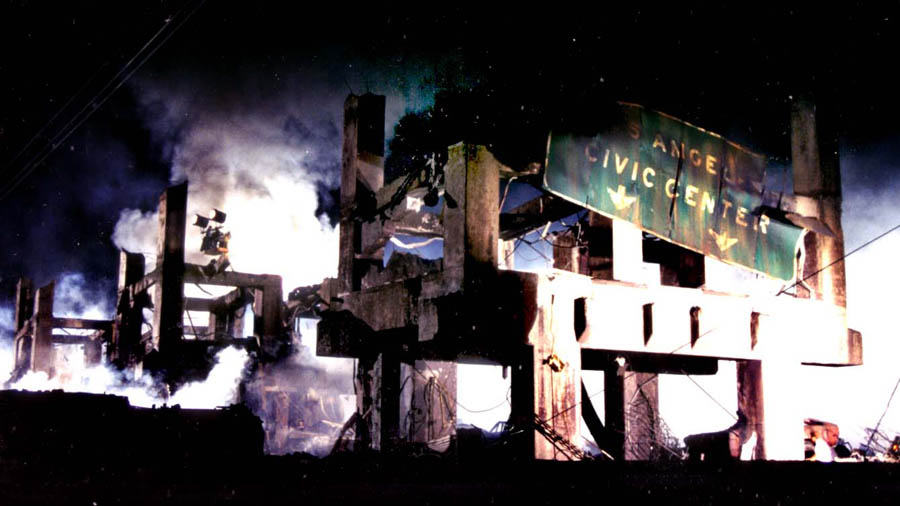John Muto

Our company got fired before we finished the job, I mean it was really a big scandal, but I walked off there with a lot of money. This is probably mid-eighties by now. I think a thousand a week. In those days a thousand a week was great money and you could live forever on it. I saved up enough money so when the company blew up rather than look for another job in visual effects I started telling people I was a production designer and eventually some people found me. Another lucky break. They were doing this movie called Teenage Comet Zombies but I was so desperate to design a movie that I read the script and said you know this is a great picture. It was really fun. It’s cleverly written. It’s really a mystery to me how that director/writer has not made a better splash in Hollywood.
The parable that I tell the students is about keeping your mouth shut. Having read the script and met the director, I was desperate for this movie. They basically said we’d like you to do it but we have to talk to you about salary. The producers were these two guys who’d done Valley Girl. On my way in from the beach -I lived in Santa Monica- as I would pass the 405 freeway I was saying Well, I have to get at least $1000 dollars a week, you know that’s what I got on my last job. Past the 405 I go, $900! I would do it for $900! And then I would drive to another landmark -$700! So by the time I got to the studio I thought I’d do it for nothing.
But luckily they came in and sat me down and gave me this big speech about how you know this movie’s going to be really tight, but we want to do something wonderful and we like you so we’re going to tell you what we have, if you could do if for that we’ll be happy but this is not a bargaining thing. It’s just you’ll do it or not do it. So I’m thinking, $100 a week. I’ll do it for $100 a week. So with that speech they obviously have $100 a week. So they said, We’ll pay you $1200 a week. So it’s like, Keep calm, keep calm, keep calm! So I said, Yes, I guess I could do it for that. I mean I was smart enough not to jump up like the dog in Peanuts, you know.
AS: And that became Night of the Comet?
JM: And that couldn’t have been luckier. It’s a wonderful little movie. In retrospect they just hired me because they knew I would do the visual effects for nothing. They had some matte shots or whatever. It was clear they didn’t consider production design very important. Hire this schmuck, he’ll do the trick shots and maybe he’ll design something. And not knowing any better, I just leapt into everything.
AS: Would you include knowledge of effects as one of the attributes a production designer should have?
JM: A lot of it depends on the kind of picture you’re doing. I think everyone who works in movies should know everything about movie making. I teach my students to use lens templates. Because then you can make suggestions like, You know we don’t need to shoot this, we can do this as a trick shot. Or a partial trick shot.
You should also know about editing. I’ve done a lot of second unit work and I did a test for second unit on a shot. After we shot the test we crowded into a little room to look at it. And it was very funny. It wasn’t supposed to be funny, but looking at it as a long test it was amusing and at the end the director screamed at me. And he went into this big routine about how this is going to be comedy and I’m not going to let you fuck up my movie. I said, What, are you crazy? This shot required 8 or 10 frames. This test shows there are a lot of 8 or 10 frame shots in here. This is a guy who’s a big movie director who makes more money than everyone in this entire restaurant combined. He didn’t know what the fuck I was talking about. In fact it was interesting because the producer was a real, way-up-the-butt-of-the-director kind of producer and he jumped in on my side because it was clear to him.
Pingback: Michael Novotny
Pingback: John Myhre